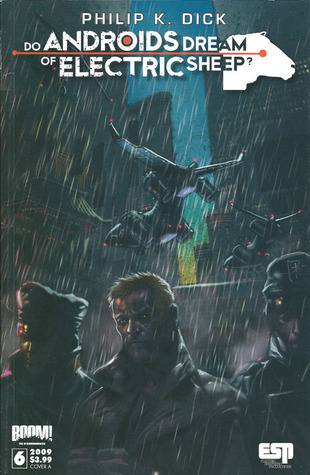
Part of Series
San Francisco lies under a cloud of radioactive dust. The World War has killed millions, driving entire species to extinction and sending mankind off-planet. Those who remained coveted any living creature, and for people who couldn’t afford one, companies built incredibly realistic fakes: horses, birds, cats, sheep . . . even humans. Rick Deckard is an officially sanctioned bounty hunter tasked to find six rogue androids—they’re machines, but look, sound, and think like humans—clever, and most of all, dangerous humans. [Philip K. Dick’s award-winning Do Androids Dream of Electric Sheep? served as the basis for the film BLADE RUNNER. BOOM! Studios presents the complete novel transplanted into the comic book medium, mixing all-new panel-to-panel continuity with the actual text from the novel in an innovative, ground-breaking 24-issue maxi-series.]
Author

Philip K. Dick was born in Chicago in 1928 and lived most of his life in California. In 1952, he began writing professionally and proceeded to write numerous novels and short-story collections. He won the Hugo Award for the best novel in 1962 for The Man in the High Castle and the John W. Campbell Memorial Award for best novel of the year in 1974 for Flow My Tears, the Policeman Said. Philip K. Dick died on March 2, 1982, in Santa Ana, California, of heart failure following a stroke. In addition to 44 published novels, Dick wrote approximately 121 short stories, most of which appeared in science fiction magazines during his lifetime. Although Dick spent most of his career as a writer in near-poverty, ten of his stories have been adapted into popular films since his death, including Blade Runner, Total Recall, A Scanner Darkly, Minority Report, Paycheck, Next, Screamers, and The Adjustment Bureau. In 2005, Time magazine named Ubik one of the one hundred greatest English-language novels published since 1923. In 2007, Dick became the first science fiction writer to be included in The Library of America series.





